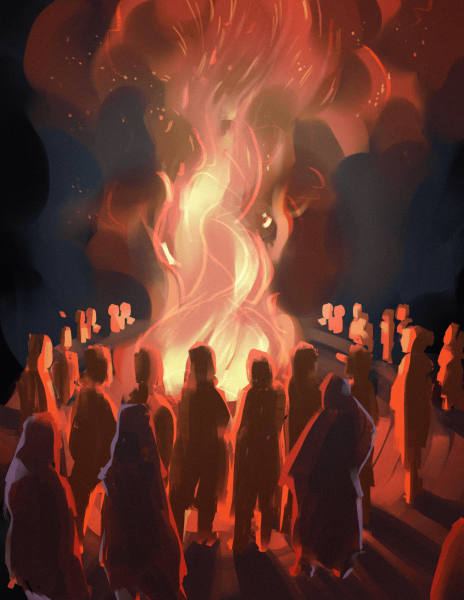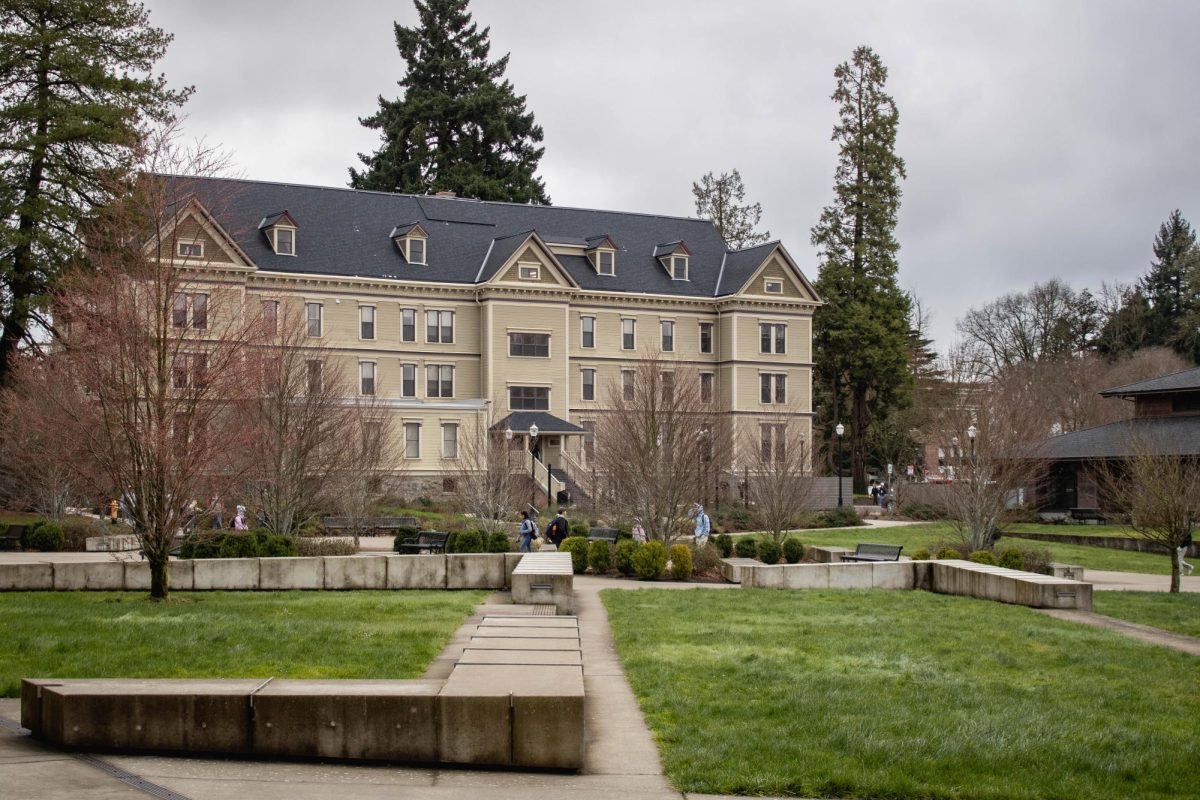If you have spent any time scrolling through social media or watching and reading the news, the term “climate change” has likely shown up, and probably more times than you can count.
Through this never ending cycle of social media, newsfeed and the politicization of climate change, it can be hard to discern its true meaning, especially if you’ve never taken a class that’s touched on the topic.
In simplest terms, climate change is the “long-term, global increase in surface temperatures of the earth and the ocean,” said Jessica Lodwick, an instructor in the College of Agricultural Sciences.
The greenhouse effect explains how this occurs.
“There’s certain greenhouse gasses naturally occurring in our atmosphere and they do a great job of sort of bouncing infrared light or heat back to Earth and kind of scattering throughout the clouds,” Lodwick said. “And so all of those gasses are just hanging out in the atmosphere doing that work. And it’s kind of like a greenhouse, they’re trapping heat.”
The greenhouse gasses responsible for climate change include methane, ozone, nitrous oxide, water vapor, chlorofluorocarbons and carbon dioxide. Carbon dioxide is considered to be the most responsible for climate change, according to the EPA.
“Since the Industrial Revolution we’ve been essentially digging up fossil fuels from underground and fossil fuels contain a lot of carbon (dioxide),” said Leon Nguyen, senior instructor in the College of Agricultural Sciences. “You burn them (and in the) course of burning fossil fuels, you release that carbon that was locked up underground into the atmosphere.”
The amount of carbon dioxide in the atmosphere has risen from 280 parts per million at the beginning of the Industrial Revolution to 417.06 parts per million in 2022, according to NOAA.
By burning these fossil fuels and adding excess carbon dioxide to the atmosphere, we make the greenhouse effect stronger, therefore warming the planet. This has resulted in the average temperature of the planet rising at least 1.1 degrees Celsius above pre-Industrial Revolution levels, according to NASA.
That number may seem small, but according to NOAA, “that extra heat is driving regional and seasonal temperature extremes.” This impacts the overall climate and is associated with changing the probability of different weather events.
Nguyen uses dice to explain the probability of weather events based on climate to his students in the introduction to climate change course he teaches.
“If you roll two dice a bunch of times, how likely is it that you’re going to get a certain number?” Nguyen said. “I think everyone sort of realizes not every number is equally as probable. So like, obviously, your odds of rolling a seven are much greater than rolling a two or 12.”
The numbers, according to Nguyen, represent the probability of certain weather events happening. Nguyen represents the changing climate by adding dots to the two dice, changing a six to a seven for instance. By doing so, the probability of higher numbers, such as 12, occurring increases.
“You’re gonna make it a lot more likely to get a 10,11 or 12, because you’re adding dots on the dice,” Nguyen said. “And you’re gonna start to see things like 13 and 14.”
The higher numbers represent the more extreme weather events that climate change is characterized by.
“We’re already at a level (of carbon dioxide and temperature increase) where we’re seeing it’s already at a tipping point where we’re seeing changes,” Lodwick said.
In Oregon, consequences of climate change have already been showing up.
Extreme heat events and wildfires are becoming more frequent, with the average number of days above 90 degrees Fahrenheit in Portland nearly doubling between 1951 and 2022, and the number of days with extreme wildfire risk across the West coast rising 166% from 1979 to 2019, according to the Oregon Climate Assessment, the Oregon Legislative Assembly’s biennial assessment of climate change in the state.
Lodwick has noticed this even in her short time of living in the state.
“I’ve only lived here for about three-and-a-half years and I’ve already experienced two heat domes (extreme heat) in Oregon and I’ve been told that it’s really unusual,” Lodwick said.
Other impacts of climate change include more severe storms, increased drought, sea level rise and warmer ocean temperatures, according to the United Nations.
This change in the frequency and intensity of certain weather events, or changes in temperature and sea level, caused by climate change has implications for all life on Earth.
“Everything that we’ve built, everything that lives on the Earth right now, is adapted or tuned to a certain climate,” Nguyen said.
The changing frequency and intensity of heatwaves in Oregon exemplifies the impact this has.
“What do we need to do about (a heatwave) for now?” Nguyen said. “If you are planning for, assuming a past climate where this is rare, then maybe you wouldn’t necessarily plan for a 2021 heatwave, for example. Or you wouldn’t put as much resources into preparing for such an event. But now you do, or at least you should, so that’s altering emergency preparedness.”
These events may not impact our day-to-day lives so much, but it will impact us long-term by the changes they will bring, according to Lodwick.
With consequences of climate change already occurring, Lodwick stresses the importance of addressing this now.
“It’s in our best interest to try and prevent it or mitigate it from getting more severe,” Lodwick said. “Let’s not make it worse. Let’s do what we can.”
Lodwick is hopeful, though, that we will see positive change in addressing climate change.
“I believe that Gen Z is gonna save the world because a lot of passion and activism has been happening and I think that’s positive,” Lodwick said.



























